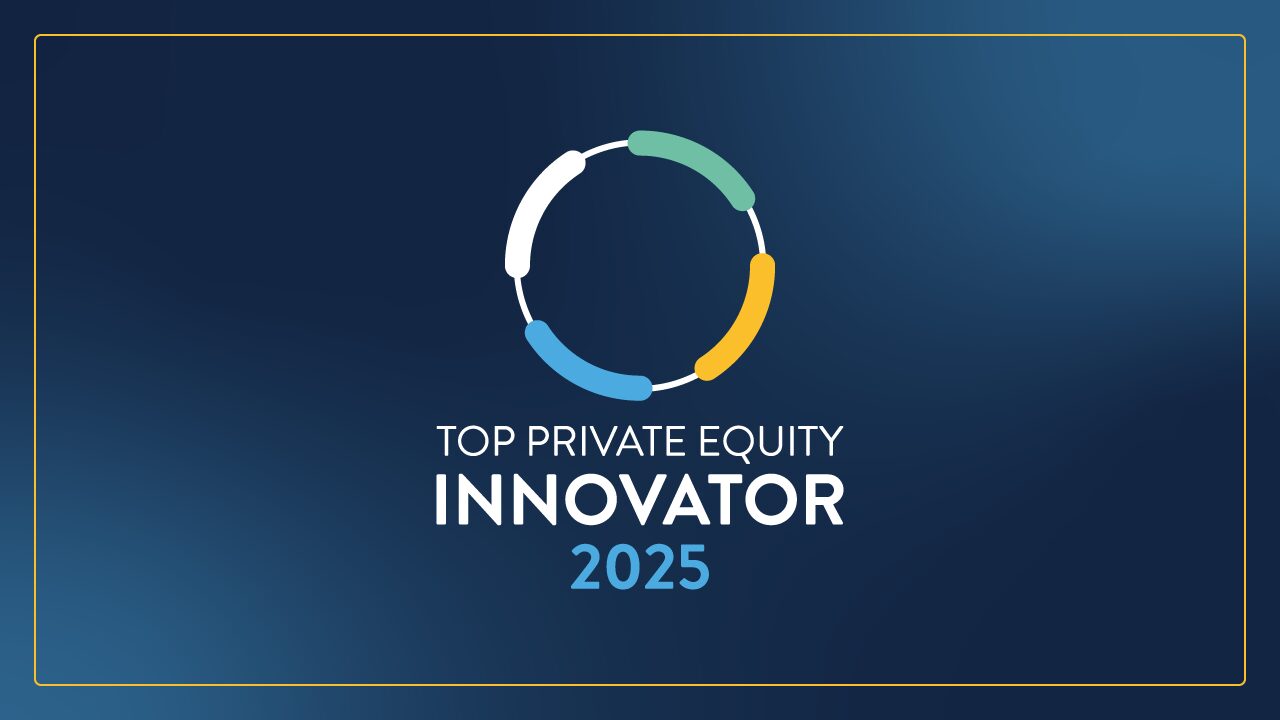Within the first few minutes of my conversation with Matthew Garff, two things became crystal clear: He fundamentally believes in what’s possible and he approaches potential problems with radical honesty. This is a personal as well as professional attitude and has served him well throughout the course of his three decades career.
While the last two years have often felt like a mission impossible, Garff and the team at Sun Capital Partners (perhaps the name of the firm says it all?) remained a bright light for their portfolio companies, traversing uncharted territory and ultimately coming out ahead—mostly due to their investment strategy of focusing energy and resources on industries they know well, and a commitment to the people side of their founder and/or family-owned businesses. In his words: “Human capital is the most valuable asset in most companies, and people enable what’s possible. They are what ultimately make it successful.”
From working with founder-owned companies and prioritizing the Chief HR role to assessing acquisition targets through operational due diligence, in this interview, Garff reveals insights into how he thinks about the future of private equity and why that narrative needs a reboot. I couldn’t have said it better myself! Spoiler alert: although he spent several years of his career acquiring golf courses, his son is the real expert on the sport now.
Sean Mooney: Why is the due diligence process so vital to the acquisition or add-on process when assessing a company’s potential?
Matthew Garff: When we acquire a business, the company often needs help understanding what’s possible—far beyond what has already been accomplished. Generally speaking, with founder or family-owned businesses, they have had their heads down for a long time, grinding it out; so, when they engage with us our first objective is to try to uncover (or help management reach) the “possible.” The due diligence process allows us to understand where the business could be performing three to five years from now.
A good example is our portfolio company National Tree. It was a second-generation, family-owned business and a market leader in selling seasonal home decor through online marketplaces like Amazon and Wayfair. They had over a decade of experience working with these online marketplaces built a market leadership position in their niche products, which we learned through diligence would continue to grow. We also recognized their capabilities in sourcing and dropshipping products. With these core strengths, we saw an opportunity to leverage these skills and expand into tertiary markets, which National Tree is now doing.
As a result of our findings, and our roadmap for achieving what’s possible, in the last two years the company has experienced tremendous progress—they have added executive team members, instituted new operational systems and disciplines, and opened the door to add-on opportunities that will expand product categories and accelerate growth.
A nod to BluWave here: you helped us with FP&A resources that worked with us for several months after closing. This was an integral part of what we are now seeing in terms of National Tree’s expansion and continued market leadership.
SM: How is the process different when working with a founder- or family-owned business?
MG: I’d say the major difference is ensuring that there is a smooth transition from a cultural perspective. Typically, these founders and family owners are very attached to the business and even though they want to evolve and grow—which is why they partner with Sun Capital—they are seeing a lot of change happen to what they built, and that can be difficult. We collaborate with them on the “Shared Vision Plan” to ensure we are aligned in every way on the strategic direction and that they are on board with the changes.
SM: What are some of the obstacles the industry is facing?
MG: The industry is really healthy and the capital and know-how from PE is very constructive. However, too often I hear the pervading narrative that “PE is a destructive force in business through leveraging businesses.” The biggest obstacle we currently face is a negative perception of the industry, touted by those who have a public voice but choose to focus on the failed companies which were owned by private equity. The truth is, many private equity investments provide wealth creation for families, fuel innovation, and enable the economic growth engine.
I always say that these detractors offer a view of PE that’s akin to someone from another country visiting Los Angeles for the first time on the one day of the year when it actually rains. Then, they go back to their friends and say: “Ha! I knew it. Los Angeles isn’t sunny, it rains every day!”
SM: What are some of the factors driving the momentum in the industry?
MG: In general, buyers are now more specialized by industry, and this makes them more informed. At our firm, we adopted the “focused industry” approach many years ago, and as a result, we are more refined in our thinking and decisions. This is good for sellers because they can find an investor-partner who understands the nuances of their particular business and industry.
I’ll use National Tree again, to give a clear-cut example of how this specialized approach benefits both parties. Currently, I spend most of my time in consumer and digital commerce. When National Tree had a rough patch with Wayfair, I picked up the phone and called my relationship at Wayfair. Within days, the problem was solved. In short: specialization supports the momentum we are now seeing industry-wide.
SM: How do you think about human capital when it comes to acquiring and managing portfolio companies?
MG: I believe human capital is one of the most valuable assets of any successful company. End of story. Several years ago, we wanted to increase the attention our portfolio companies were giving to human capital. As a solution, we put in place a strategy to have our portfolio companies hire a Chief HR Officer—a role that drives strategic thinking, fundamental change through processes, and design efficiencies. This person’s role is to think strategically about the business, then marry that strategic thinking with decision-making around human capital. He or she understands long-term objectives and implements a hiring strategy to meet these objectives. It was a game-changer for our companies and enabled us to swiftly drive change and make money for the shareholders.
If we are considering a company for acquisition, one of the key components of “HR diligence” is seeing if they have this role filled. If they do, it signals they are proactive versus reactive. Unfortunately, most companies are extremely reactive, but we’ve come to understand that having a Chief HR Officer is a core part of the business strategy. It’s not always easy to fill this role, because HR is too often put in a reactive role. But the HR function needs to be elevated to someone who can ask questions like: “Is there a hiring strategy and plan for who we hire six months to a year from now.”
SM: Many companies are going through hiring and recruiting challenges. How is Sun Capital helping support your portcos to this end, and what are some of the suggested solutions?
MG: We have long understood that strong cultures lead to strong performance. As a regular practice, we conduct surveys at our companies and measure the results. This is the only way to improve on it. When we are looking at companies to buy, or even when we visit our portfolio companies, culture is a key focus because it can make the difference in terms of hiring and retaining top talent; and having the most capable, skilled employees leads to better performance.
As an example, I was visiting a prospective company a few weeks ago, and as we walked the warehouse the employees were eagerly coming up to our tour guide, a company executive. They were saying hello, high-fiving, and seeking his attention. It became immediately clear that the company had a strong culture, and when we did some more digging we found that turnover was low and profitability high. This strong, healthy culture we witnessed first-hand also translated to strong performance.
While recruiting is certainly more of a heavy lift right now, I always remind our portfolio company leaders that employees need to understand the vision, and they need to know everyone—including managers and executives—are rowing in the same direction. When an employee feels like “our mission statement is ‘X’ but no one seems to follow it” this undermines culture, and can have negative consequences (not to mention high costs).
As a slight aside, the founders and Co-CEOs of Sun Capital have developed our company culture around the concept of radical honesty. In short, having honest conversations and being encouraged to voice our opinions is a core part of our DNA. This means everyone, from every level of our organization, is given the opportunity to be heard.
SM: Are there any industries that are being overlooked by PE firms right now? If so, why do you think that is?
MG: Successful investors often exhibit the quality of being open-minded and avoiding the temptation of the crowd, because the crowd is not always correct. For example, at present “brick and mortar” businesses are viewed as unfavorable, and in some cases, this is deserved. But many retailers that have strong underlying businesses will stand the test of time.
We recently acquired a mattress retailer called Mancini’s Sleepworld. For the last few years, the conventional thinking has been that online mattress retailers like Casper would push traditional retailers out of business. As it turns out, the opposite has been true; Casper now has physical stores, because customers actually want to “try before they buy.” By the way, Mancini’s is doing great and we expect this trend to continue.
Sun Capital has been a successful early adopter in other industries that may seem out of favor. Fortunately, this has allowed us to exit at higher multiples than we entered in areas like HVAC, produce, and contract manufacturing. While we do spend ample time deliberating the merits of a business based on industry trends, we try to stay open-minded based on a variety of other factors and be aware of what we see happening at a personal, local, and community level.
SM: Given all your past investment focus on golf courses do you have a favorite?
MG: If I’m being radically honest (I knew that would come back to bite me), I’m not a good golfer, and I really don’t get on the course much anymore. However, my 16-year-old son is an avid golfer, so when he asks me to join I generally take him up on the offer—it’s often the only time I get to spend with him. We recently spent a day at Rancho Park in Westwood (Los Angeles, CA), and apparently, it has the most traffic of any golf course in America. I was obviously thrilled with so many onlookers, given my current trend of 120+ strokes.


